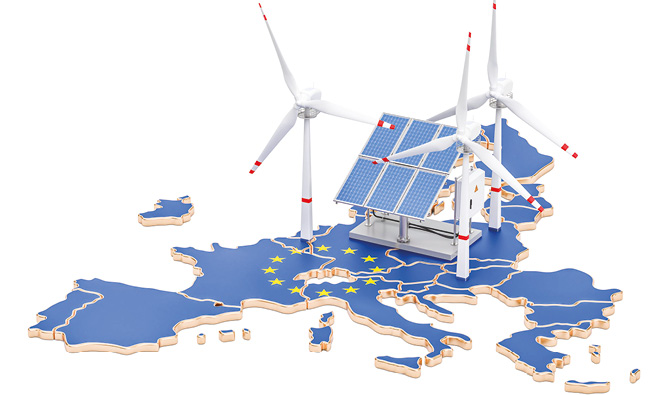
The move away from food-based biofuels
10th November 2017
Renewable Energy Progress Report
10th November 2017Clarity needed on Northern Ireland participation in Single Electricity Market

It is widely accepted within the energy sector and the wider business and political community that Northern Ireland’s participation in the single electricity market in Ireland, and its successor market ISEM, must continue after the United Kingdom leaves the European Union.
Unlike other aspects of Brexit, this proposition has not encountered dissenting voices arguing for a different UK-only energy arrangement. In her Lancaster House speech in January this year, the UK Prime Minister made a couple of fleeting references to energy and neither of those related to the single electricity market in Ireland. Despite the lack of any assurance from Downing Street, regulators and TSOs North and South of the border continued to work on the ISEM project in the expectation that the impact of Brexit would somehow be accommodated.
In February, the UK Government’s white paper on the UK’s exit from and new partnership with the EU, noted the Government was considering “all options for the UK’s further relationship with the EU on energy, in particular to avoid disruption to the all-island single electricity market”. Given the disappointing absence of any details on how that could be achieved, it is commendable that work on the ISEM project continued unabated. Finally, in August the UK Government published a position on Northern Ireland and Ireland. It proposed that the new framework relevant to the energy market in Northern Ireland and Ireland should:
- facilitate the single electricity market;
- facilitate the continuation of interconnectors for electricity and gas between the island of Ireland and Great Britain;
- recognise the importance placed on cross-border cooperation in the Good Friday Agreement, which provides for cooperation between the Northern Ireland and Ireland and the UK and Ireland;
- take account of the strategic importance to Northern Ireland and Ireland of maintaining affordable, secure and sustainable supplies of electricity and gas for businesses and domestic customers;
- seek to provide certainty as soon as possible for citizens, investors and business in Northern Ireland and Ireland on energy arrangements;
- include an appropriate interim period to ensure that any changes to current arrangements can be implemented in the timely way.
Of course these principles are welcome, but given the complexities of having one region of the UK very closed integrated with the Irish market, which will remain in the EU, there is a clear and compelling need for the UK Government to consider, and publish details of, how Northern Ireland’s continued participation in the single electricity market will be achieved. Some of the coordinated EU-wide and regional co-operation in determining methodologies may be capable of being delivered at a contractual level between the relevant Northern Ireland market participants and their EU counterparts. However, what we urgently need is for the UK and EU Brexit negotiators to grapple with the thorny question of institutional authority over the arrangement. The UK Prime Minister has made it clear in January that she wanted to “take back control of our laws and bring an end to the jurisdiction of the European Court of Justice in Britain” but it is difficult to square continued participation in the EU internal energy market without some form of EU jurisdictional control. Northern Ireland businesses, investors and citizens need this clarity as it will play a vital part in ensuring that we have a reliable supply of electricity, in this region.

